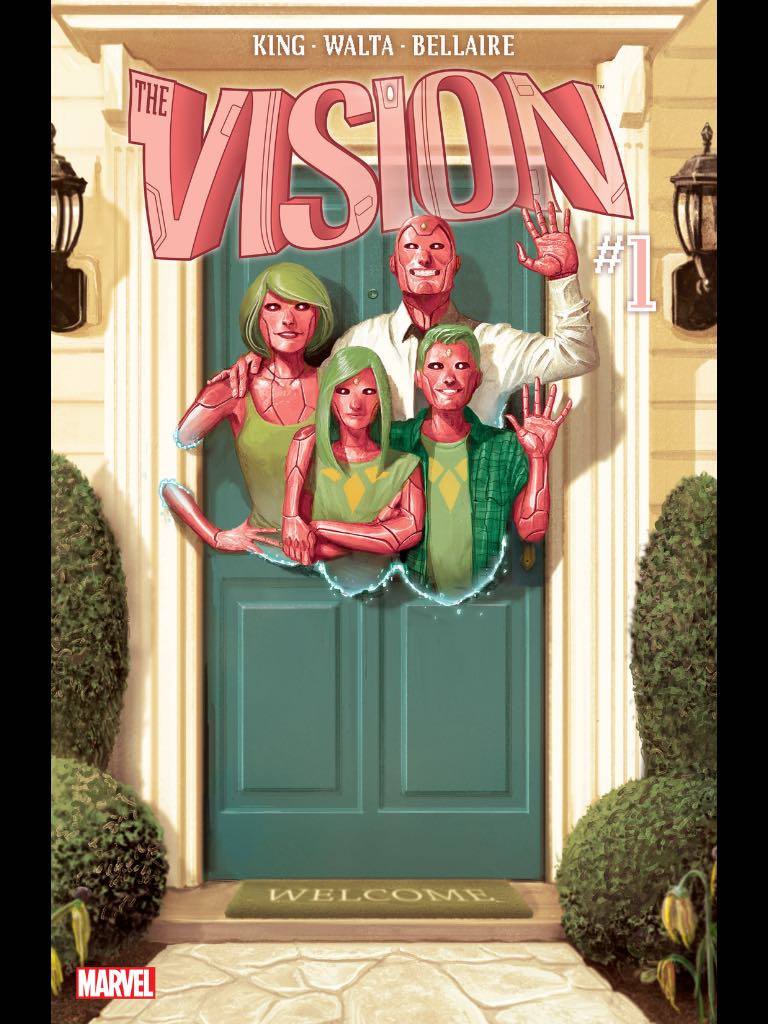Artificial Life in the Suburbs

In The Vision, a new ongoing Marvel comic book series by Tom King, Gabriel Hernandez Walta and Jordie Bellaire, a family of androids move into a Washington D.C. suburb. The father in this family is The Vision, the “benevolent” artificial intelligence recently made famous in the superhero film Avengers: Age of Ultron. In King’s version, however, coexistence between the Vision and ordinary human beings is not characterized by harmony and mutual dependence.
From the very beginning of the first issue of the series a future confrontation between the people of the suburb and the Visions is foreshadowed. Two of the neighbors, George and Nora, visit the Visions, and as they leave the house, the narrator’s voice reads: Later, near the end of our story, one of the Visions will set George and Nora’s house on fire. They will die in the flames. It quickly becomes evident that a family of androids isn’t very compatible with ordinary people, as The Vision’s children face problems at school, and the parents of the family become increasingly uncomfortable with the meaninglessness of suburban life. In a conversation about the meaning of the word “nice”, The Vision concludes: To assert as truth that which has no meaning is the core mission of humanity.
Through the eyes of this family of androids, King characterizes the human in its most mundane form, as it is exemplified in the oppressive normality of family life on a street in an American suburb, as a construct without a meaningful core. In one of the series’ heavier uses of metaphor, humans are likened to a vase made of a substance poisonous to plants, and the narrator concludes: The mystery is then not why they are empty, but why anyone would ever make such a vase.
Superhero comics are traditionally affirmative of the human in a humanistic sense, as the heroes are cast as superhumanly strong, but sympathetically “flawed” so that we can see ourselves in their everyday struggles with power and responsibility. King reshapes the superhero narrative as a much darker kind of story, where the gaze of the fundamentally posthuman androids of The Vision family see very little hope for identification between them and the, from their point of view, obsolete humans.
